A Q&A with retiring Kronos members John Sherba and Hank Dutt
By Matthew J. Campbell
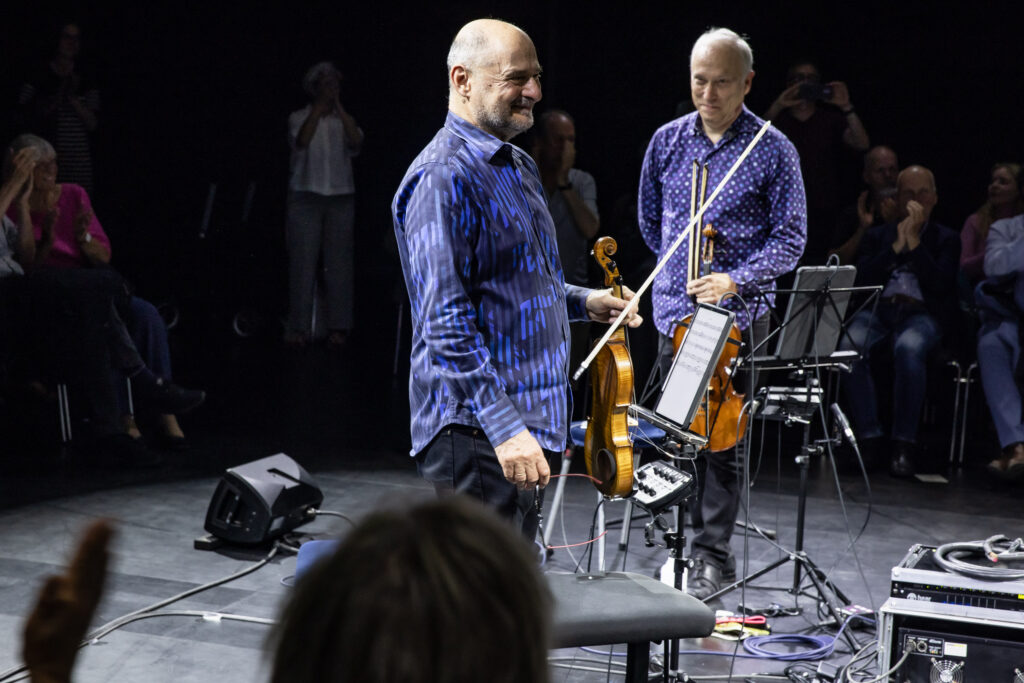
As announced in March, violinist John Sherba and violist Hank Dutt are soon to retire from Kronos after 45+ years with the quartet. They will give their final performances with the group at the upcoming Kronos Festival in San Francisco from June 20-23, which includes an in-person conversation with John & Hank, moderated by WNYC’s Brooke Gladstone on June 22. This interview was conducted earlier this month, while the ensemble was concluding its KRONOS Five Decades tour in Europe.
Q: What is going through your minds at this moment, as you reflect upon your careers and all your accomplishments?
John Sherba: I want to thank all the composers and all of the musicians that we have worked with, because without those compositions, there would be no Kronos. There would be no touring, and no Kronos audience. So I really want to make it clear how much I appreciate all of these fantastic pieces that have been written by the composers for the group. Also, throughout the years, I feel real fortunate that I’ve been able to travel all over the world and play in all these great halls, not only once, but many times. I think I’ve played Carnegie Hall almost fifty times. On this fiftieth anniversary tour, when I go to these places, it’s like going home. I usually look for a special place to warm up, and I’m finding all these rooms that have all of these beautiful memories for me. It’s been an incredible adventure, something that I’m very proud of.
Hank Dutt: I’m a little emotional on this last tour of Europe. I’m thinking a little more about my whole career and when I first started out in Kronos. I had a wonderful teacher who really instilled the love of chamber music and the love of quartet playing when I was studying at the university. And it made me really want to be in a quartet. Coming right out of school, I had the opportunity to be in this group. And I’ve felt very lucky in order to have that, working in the beginning with John and Joan [Jeanrenaud] and David [Harrington], and really establishing ourselves as a quartet and learning the repertoire and working diligently on all the music. We studied so hard, and then as John said, we played all these new works and had the composers with us in the rehearsal. I learned so much from my colleagues, as well as the composers, so I felt like it was always a growth for me, being in the group, and that’s the best thing possible. And so on this last tour, I’ll say, “Oh, this is the last time I’m doing [George Crumb’s] Black Angels,” which is an iconic work for us. It was seminal for David to have started the group around that, and it’s very special. And we’re doing [Steve Reich’s] Different Trains on this tour as well. That’s a great piece—it won a Grammy—and I remember working so hard on it with Steve Reich. And so these last performances—the last time I’m going to be able to do something with the group—has made me even more emotional, because I’ve had so much invested in the interpretation of these works that it’s sad to leave it. But it’s important to move on.
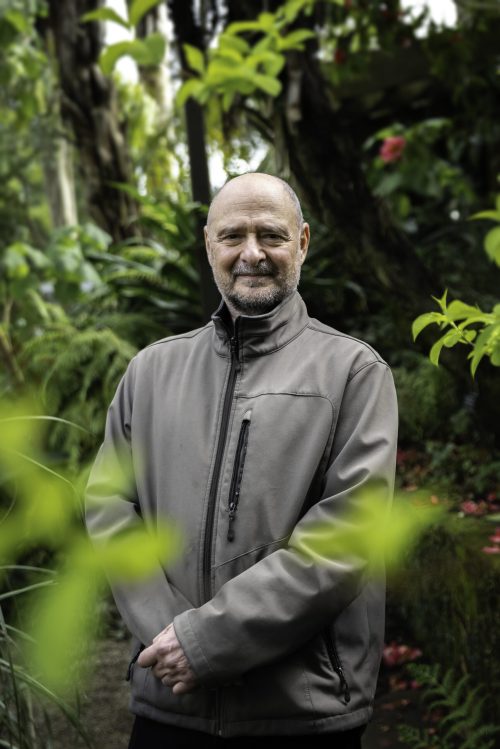
Q: Can you talk about your early days with Kronos? Back then, no one else was working with living composers on brand new commissions to the level you were. Did you have a sense of just how outside of the box you were?
JS: It’s interesting because when I came out to do my audition for the quartet, way back in 1978, I actually had not heard of the Kronos Quartet. But I was playing in a quartet with somebody who was from San Francisco and wanted to go back to San Francisco very, very much. This was in Milwaukee. And so we both went out, and I got to stay. And there was a point where I remember thinking in my mind, “You know, I really want this.” I just felt that everybody had the same viewpoint. We wanted to accomplish something, something unique and different and really make a mark in music. And I sensed that. And even more so, we all really wanted to perform. I remember that first year in the quartet, even though our sphere, the circle where we performed, was not very wide… I remember our first concert in Seattle, that was a big deal. Our first concert in Contra Costa… It was a big deal, just going across the Bay Bridge [laughs]. But we had the spirit of really wanting to share our music with other people and develop an audience. And so even in that first year, I think we did around 80 concerts. And that’s been kind of the norm throughout the years. And so I really wanted this, and I was just thrilled when they asked me to stay.
HD: When you’re a musician, you’re always looking to better yourself. You’re practicing—you practice all the time. You work alone, and you raise your level to a certain extent. There’s always a way to play it differently or better, and so you never reach perfection. You can get close, I think. But there’s always a striving to do better and play it better. And when you have colleagues that are helping you along, that is really ideal, because you have other ears to say, “Oh, try it this way,” or “Have you thought about the character a different way?” or whatever. And so as I said about my mentor back at school, he was such a beautiful coach, and he was inspiring at the same time as giving us great advice on how to play certain things. And [in Kronos] we try to retain that idea of helping each other along the road. It seemed very natural to have the composer involved in rehearsals, because they could then give you insight into the work. You could play it a certain way, and they’d say, “Oh, you know that doesn’t sound right to me. Could you try it shorter?,” or “The reason behind this is the character,” and then you play it differently because the person has given you a way to think, or an image, so that you can better interpret the work. And you feel like it’s congealed because the five of you have worked so hard in getting it into a good place. And so it seemed natural. I didn’t say, at the time, “Well, this is something that’s unique.” It just seemed natural as part of being a musician, of trying to get things better.
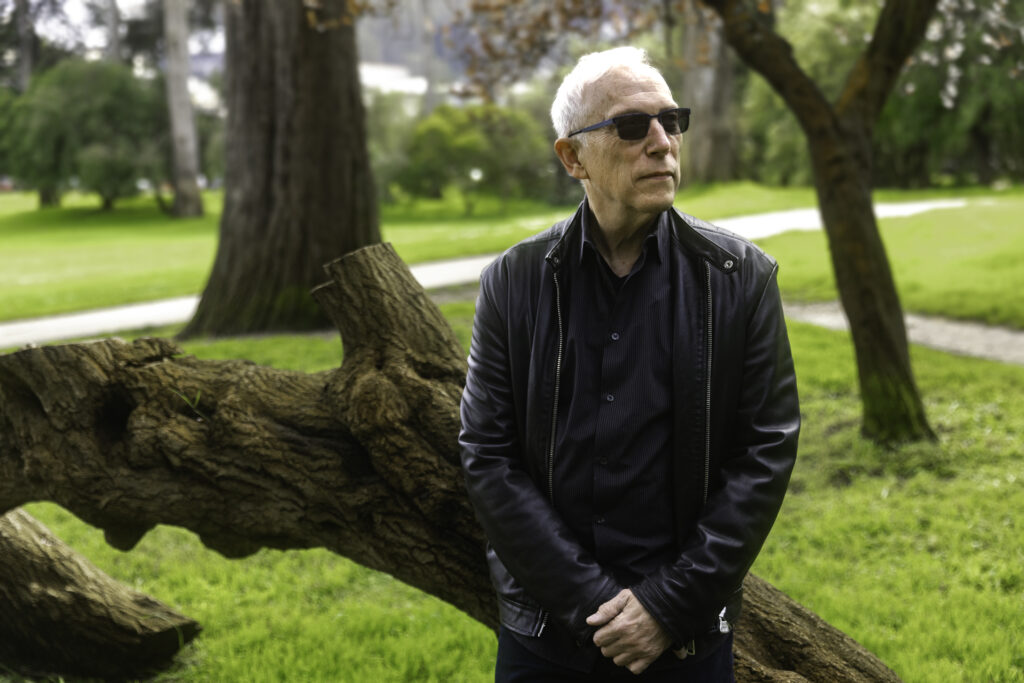
Q: I’d imagine there’s give and take in the other direction, too. When the composer has a chance to hear their piece being workshopped, will they change some things based on what they’re hearing?
JS: That’s kind of the ideal, to bring the composer in and have the composer feel both to themselves and to us that they’re a fifth member of the group. It’s really great when we can actually communicate in the same way, using the same language. And that’s when it’s the ideal. Of course, it’s not always the ideal. I remember a couple rehearsals when I really wanted to change something in the piece. I just thought, “You know, this isn’t working,” and I had to think to myself, “Now should I tell the composer this, or shouldn’t I?” And if it was a very special relationship, where we’d worked with the composer a lot, I felt that I could, and there weren’t any hard feelings at all. But there were some cases where I thought, “Let me just really work with what the composer wrote on the page, and really go with that and try and make it work for myself. See if he or she can change me rather than me trying to change him or her.” But what I’ve realized over the years, working with so many different personalities, there’s a similarity: they all want to have these notes that are written on the page expressed in a certain way. And sometimes you can help that along.
HD: I find that just as all people have different personalities, composers have different ways of approaching their music with the musicians. Some of them have strict ideas about how it should go. Others are very open to interpretations or to ideas, and as John said, you can put forth an idea, and they say, “Oh, that sounds like a great idea!” So it really depends on the composer, and what they want to achieve. It’s very interesting working with Terry Riley, because when we first started working together, he had not even written music in many, many years, he was just doing improvisation. And so it was great because he had all these little measures—“Okay, these are sets,” he said—and we would experiment with them all, and they became a piece. It was very exciting, because it was drawing him back to our way of playing, our written music. So every relationship with a composer is different, and unique to their personality.
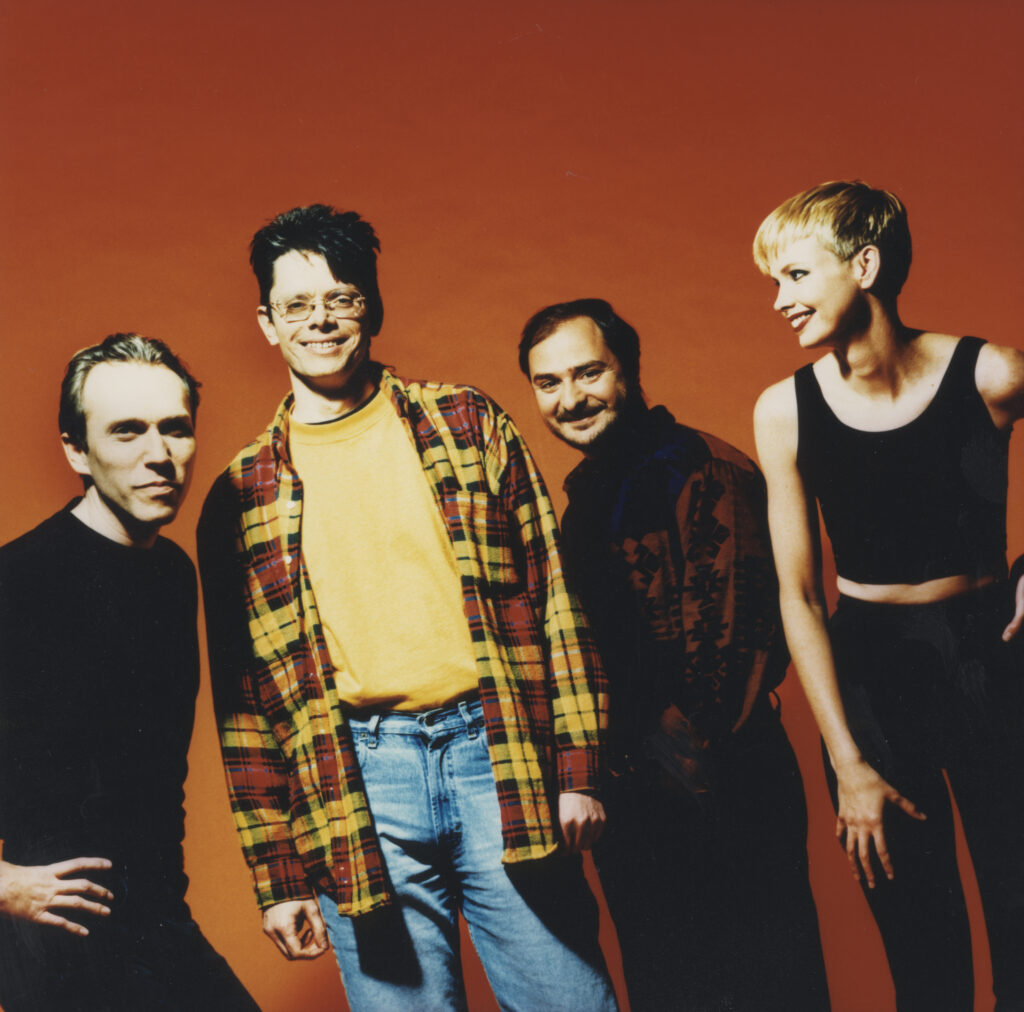
Q: I would guess the very variety of what you’ve experienced is part of what’s kept it interesting over the years. Is that correct?
JS: Oh, yes. Also, sometimes you’re really surprised. I remember we were working with John Cage, and he wrote us this incredible piece. When you think of Cage, you think of “Freedom.” And yet, when we got the score—it was the most beautiful score—it was all written with this very special pen, and I tell you there were like eight different directions on many of the notes. He knew just what he wanted. And when we worked with him, he was listening for, “Did we do what was in this ink that he put on the page?” It was very, very specific. And I was kind of surprised. I was expecting a bit more of a freer attitude. But it was great working with him. I just loved it. And then there was a composer like Arvo Pärt. We got the score, and as far as articulation and bowing and things like that, nothing was really written on it. And so when we worked with him, we put in our own slurs and articulations and even dynamics and we asked him, “Is this OK?,” and looking at his eyes to see if he thought this would work out. And he said, “Oh, yes!” He was very lax about it. And then we said, “In the rehearsal, we also tried it this way,” with completely different slurring and phrasing and dynamics, and we looked at him again for advice, and he said, “Oh, you know, it can work beautifully that way too! That sounds wonderful!” He had this incredible sense of freedom about his music. So it really keeps you on your toes, and it’s what really makes everything very, very interesting.
HD: When you work on a piece without the composer, and then you present it to the composer, you sometimes find you’ve taken a wrong turn—it’s completely different from what they had intended or wanted. There was a case when we played a work by a Swedish composer. It was before the internet, and we had worked on it and brought it over to Europe [to play for him]. We were playing it very inwardly, because we thought something in the directions felt that way, and he said, “Oh no, no, it should be emotional!” He really wanted it more outward and emoting, and so I thought, “Well, that was a very interesting mistake to have made.” It was not very clear in the score, but it was great to have that discussion with him, because it felt like we honored what he had intended.
Q: When you both talk about the range of composers’ approaches to interactivity with the quartet, and also about the fact that when you started working with Terry, he wasn’t really working with notated music, it reminds me of the extent to which you’ve worked with composers who come from cultural and musical traditions that aren’t related to the string quartet whatsoever. Would you talk about some of your favorite or most insightful moments from collaborating with composers where just the meeting of the traditions is a challenge to be undertaken?
JS: I remember when we were working on Pieces of Africa, on Dumi’s piece [Editor’s note: Zimbabwean composer Dumisane Maraire]. It’s very complex, rhythmically. There has to be a cleanliness to what you hear, what rhythms actually come out, and so the rhythms have to be very, very precise, and things that are together really have to be together. So we were working in great detail on ensemble, and of course we were using our Western language. He was there, and it was hard and very challenging. And then in the middle of the rehearsal, we were talking about ensemble, and he used the word “gluing.” And that’s a word that never came up in our rehearsals: gluing. You’re gluing your part with another part. And to me, when I heard that word, it just made everything very clear. And that’s what’s wonderful with working with composers who maybe don’t have the “Western” tradition. Some of the words they come up with in describing the music are just something that you’ve never heard, and that just opens up a whole other way of approaching these notes on the page. And I remember that one specifically, the gluing. When you think about it, it’s a great word when you’re talking about ensemble.
HD: We did a couple jazz records with Orrin Keepnews, who was a really great producer for [Thelonious] Monk and Bill Evans and others. And we were able to play with some great jazz musicians: [guitarist] Jim Hall, [bassist] Eddie Gomez, and [bassist] Ron Carter. One of the great things about working on those pieces is the way the bassists felt the beat. [A jazz musician might say], “Well, that needed a little something on the back side.” So it gives you an idea of how to approach the piece a little differently. We also worked with [saxophonist] Ornette Coleman on a piece, and his whole thing was Harmolodics. And so we played this piece, and in Western tradition, we start together, and he said, “No, don’t think about that. Just come in when you want to come in” [laughs]. It was really hard for us to even think that way, because your whole life has been trying to play something together and in tune, and here you’re told, “Oh, just come in and feel it.” And it was really a very interesting concept, and it was actually hard to do in a way. You’re so used to following each other, but you had to let yourself go and come in. I thought that was really cool.
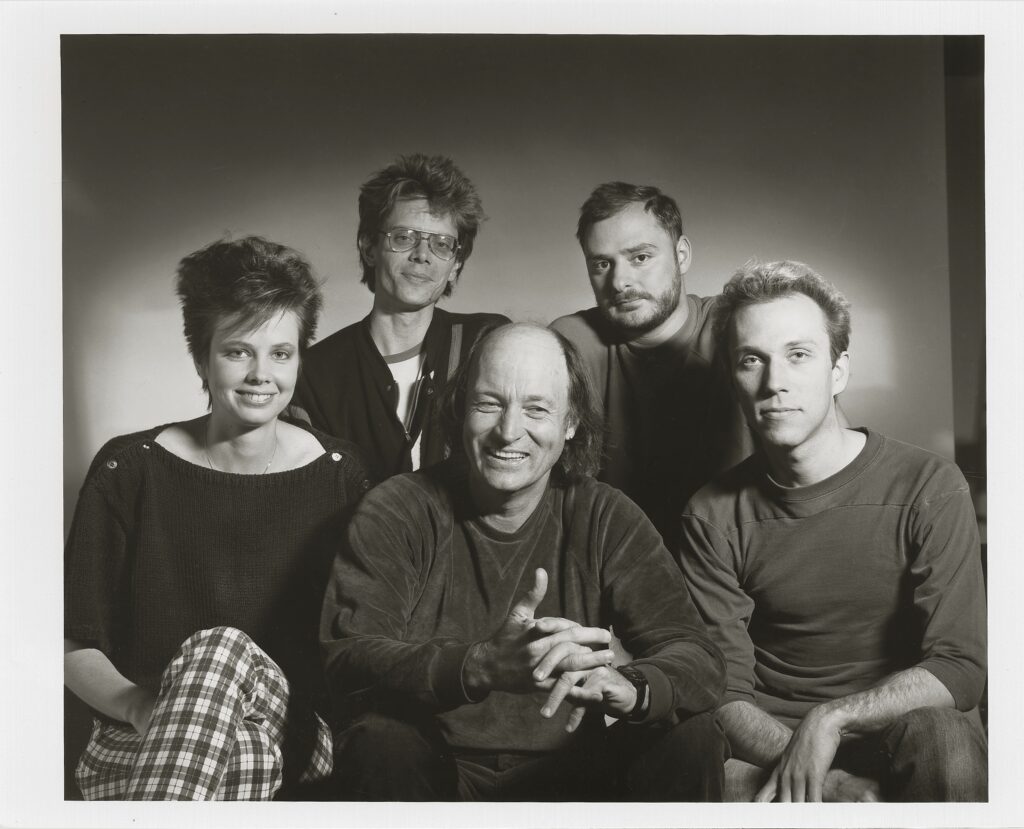
Q: That reminds me—was it Terry Riley who told you, “Try playing without any vibrato”? That’s like losing decades of training, right?
JS: Yeah, that was a real eye-opener when we started working with Terry and talking about the use of vibrato, and not using vibrato, and having the expression come from the bow. That really developed our sound world. We think about that sound in every piece we play. We think about a particular non-vibrato sound, and maybe that could work really great. And so we try it, and sometimes it works in another piece, and sometimes it doesn’t.
HD: Terry’s approach to music was influenced by his Indian studies, and of course, if you listen to any Indian musicians, they are playing to a drone, and it’s so in tune, it’s incredible. Their idea of pitch is so spot-on, and so I think that’s one of the reasons Terry liked that. But then he also had the jazz background, and so when you are being expressive, you do it as John said, with your bow and bow speed, as opposed to vibrato. But we were able to do that with both, and it made a very interesting result.
JS: One of the incredible experiences I remember is working with La Monte Young. He wrote a piece where the pitch had to be—I’ll just call it out and say it—it had to be perfect, because he wanted to have the harmonics ring in a certain way, and the vibrations to almost shake the room. And of course, what he was trying to accomplish is basically impossible on stringed instruments. You play the work, which is maybe about 90 minutes long, in a hall that has air conditioning. The strings go out [of tune] because it’s cold—they just naturally do—and so playing what he was asking was impossible. I remember before the concert, we spent a couple hours just trying to tune our instruments so they really rang in the way that La Monte wanted. And he was helping us, he was actually tuning it for us, but mainly what I learned from La Monte was… patience. Because in order to do that, in order to try to tune your instrument for two hours, you have to have patience, and I think La Monte is the master of patience. And that’s a great thing for any musician to learn, any instrumentalist. You’ve got to be patient. Things aren’t going to happen right away, and you’re going to slip, like your pegs are going to slip, but you’ve got to be patient.
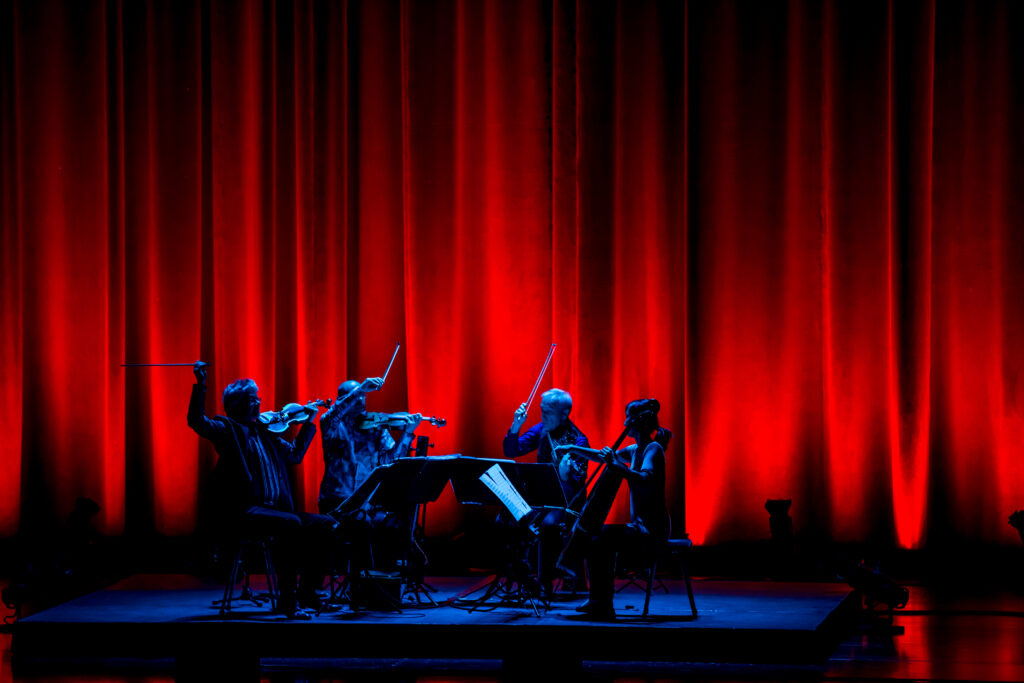
Q: Would you share some thoughts about the upcoming Kronos Festival?
JS: There’s something very exciting about doing a premiere—and there are a lot of them! To experience that high—Is it going to work? Is it not going to work? Another thing that I’m really looking forward to in the Festival is the very last concert, when we do [A Thousand Thoughts,] the film with Sam Green. I just found out from my son that he’s going to bring my grandson to that concert. And my grandson is now 3 ½, and for me that’s really, really special, because I have vague memories myself coming from around 3 ½. I’m very, very happy that Darren, my grandson, will be at this concert, and maybe when he’s 80 years old or 70, when he’s getting to be my age, he can tell people that he knows, his family, that he saw his grandfather play with the Kronos Quartet. And so I’m really excited that he’s going to be there. And I hope that when I walk out, he shouts out, “Grandpa!” [laughs]
HD: It’ll be a bittersweet time, because it’ll be my last performances with Kronos, and so in a sense, I’ll be very emotional, I imagine. But on the first night of the Festival, we are going to play lots of premieres, and that’s what we do. But there’s one piece in particular I’m looking forward to playing again, and we played it throughout this season. It’s [Gold Came from Space] by Aleksandra Vrebalov. She’s written several works for us, and I love her music because she always gives me a really great part. She wrote an especially beautiful viola solo at the end of this work, and so I love the piece for that reason. I’m really looking forward to playing it one last time. We’re playing with Tanya Tagaq, who is an incredible Inuit singer and a visceral force on the stage. She’s really, really amazing. We’re also playing with Mahsa Vahdat, who is an Iranian singer who is so gorgeous in her approach to music and how she sounds. Wu Man will be joining us as well, and I love her artistry. I always feel like I learn so much, just being on stage with her. So those things, and as John pointed out, having the film be the last concert. It’s a documentary about Kronos, and so it seems appropriate to have that as the last thing that we do for our last concert. I’m really looking forward to the Festival. It should be lots of fun.
Matthew J. Campbell is a Virginia-based writer and consultant and a former Kronos Performing Arts Association Strategic Initiatives Director.
Kronos Festival takes place June 20-23 at SFJAZZ Center in San Francisco. Complete program and ticket information below.
Kronos Festival is produced by the Kronos Performing Arts Association (KPAA) and is part of the San Francisco–based 501(c)3 nonprofit’s KRONOS PRESENTS program. It is made possible by support from San Francisco Grants for the Arts, National Endowment for the Arts, Barbro Osher Pro Suecia Foundation, William and Flora Hewlett Foundation, and Bernard Osher Foundation.



